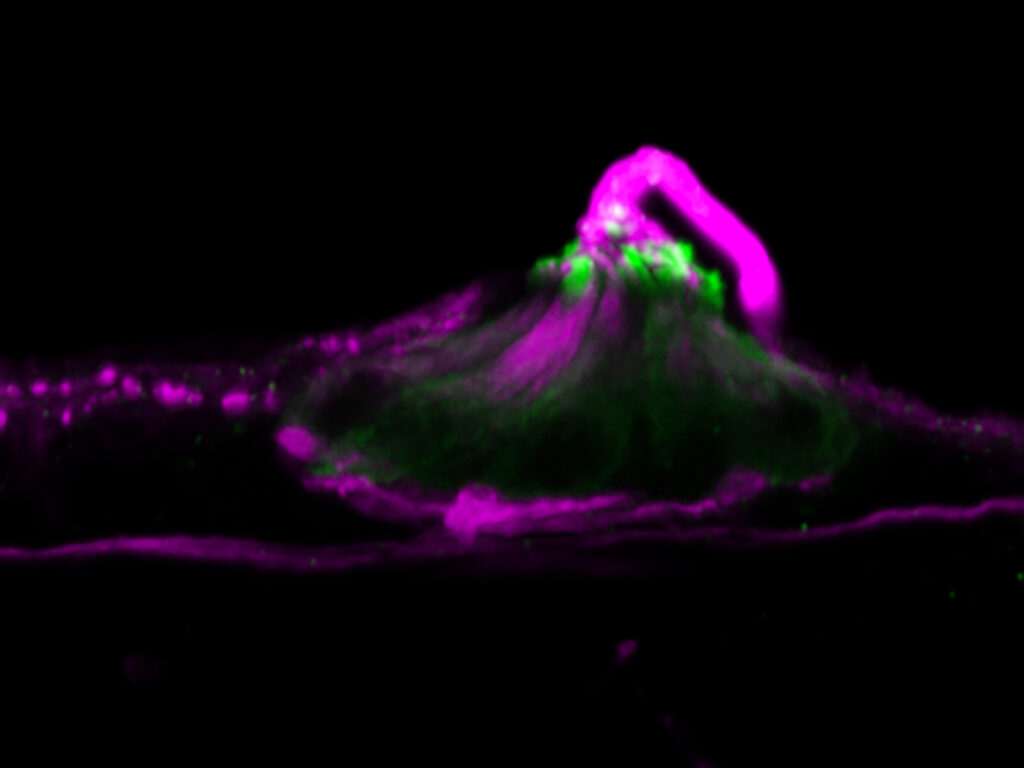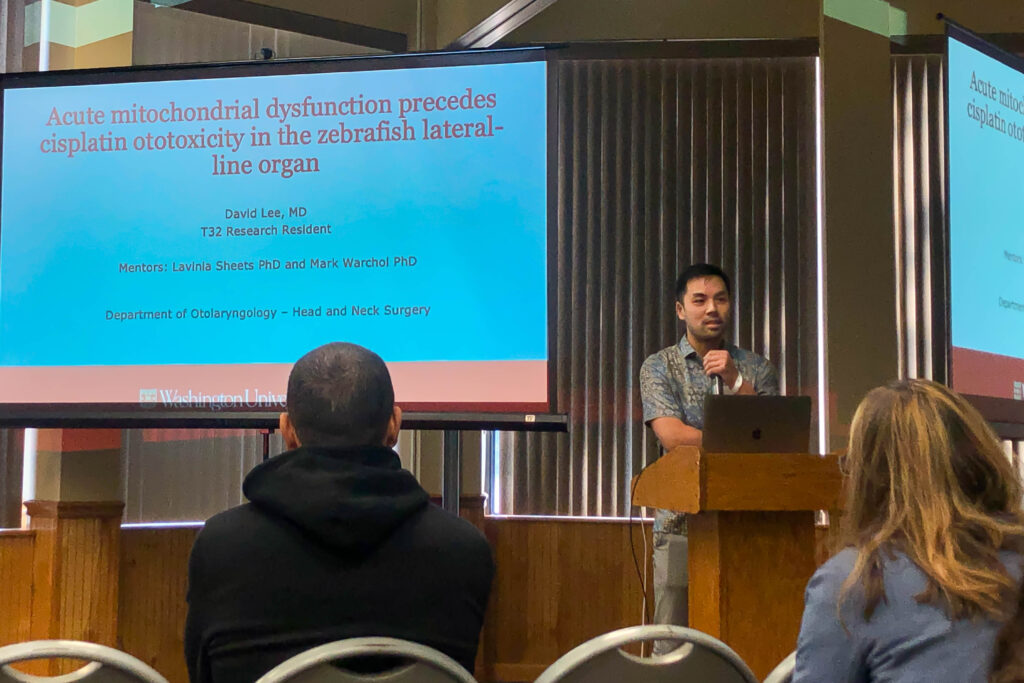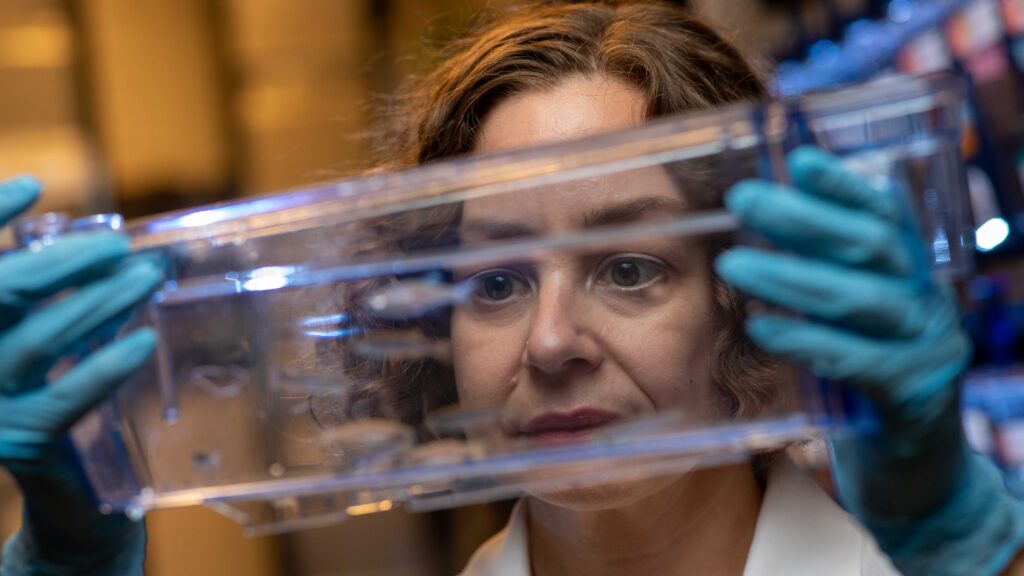The laboratory of Lavinia Sheets, PhD, at Washington University School of Medicine may have discovered the cause of hearing loss due to cisplatin, a common chemotherapy agent used to treat many cancer patients.
Sheets serves as assistant professor of otolaryngology at WashU. The work was largely conducted by otolaryngology resident David Lee, MD, who presented the findings at a recent Washington University Neuroscience Retreat, held Oct. 6-7.

Many patients who have undergone cancer treatment, endure the risk of developing long term side effects from that treatment. These issues can arise during treatment or months and even years later. One of the common side effects of chemotherapy is hearing loss, due to high doses of drugs like cisplatin.
Cisplatin is the chemotherapy of choice for 20% of cancer patients in the US. It is known to cause irreversible hearing loss in about 50% of treated patients.
Cisplatin as a chemotherapy has been common since the 1970s, but we still don’t know how it causes hearing loss. The dynamic changes that occur in response to cisplatin are difficult to measure in humans because the inner ear, the organ responsible for hearing, is small and encased in dense bone right next to the brain stem where it is hard to access.
The Sheets lab therefore uses a much more accessible model to study cisplatin toxicity – the zebrafish. Zebrafish have the same hearing cells – sensory hair cells – as humans, but these cells are located on the surface of the fish’s body where they are uniquely accessible to imaging the dynamic changes that might result from exposure to cisplatin.

The lab has discovered that mitochondria – the powerhouses of the cell – become dysregulated immediately prior to hearing cell death and that mitochondrial activity increases the vulnerability of hair cells to cisplatin. Notably, the dysregulation does not occur until many hours after exposure to cisplatin, offering an important window for therapeutic intervention.
Future efforts in the lab hope to identify the precise mechanisms by which cisplatin causes mitochondrial dysregulation and to identify other potential factors associated with hair cell vulnerability. To learn more about these studies, please contact Lavinia Sheets, PhD.
